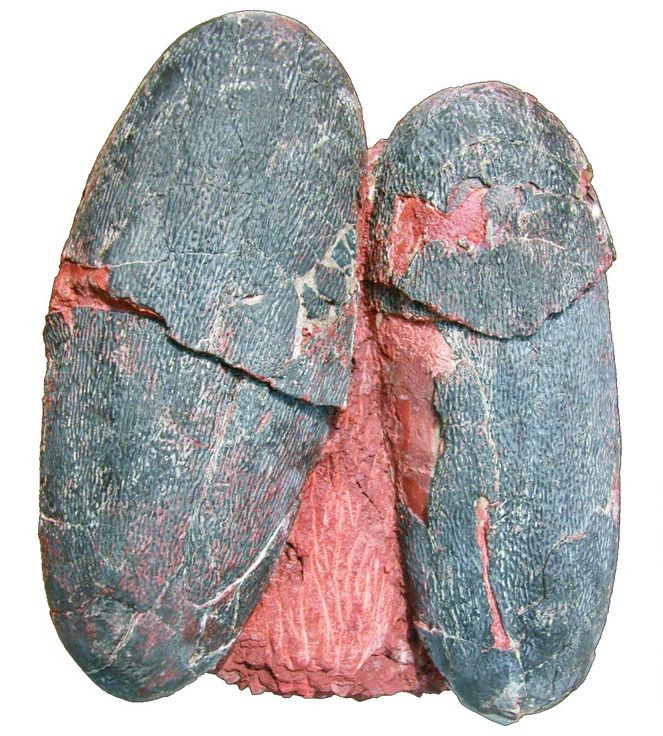Dozens Of Dinosaur Eggs From 130 Million Years Ago Found In China

It is not the sort of miracle one would typically imagine when thinking of Christmas, but on Christmas day, a construction crew in China made an accidental discovery of dozens of dinosaur eggs dating back about 130 million years ago.
The very well-preserved eggs from the Cretaceous period were found at the construction site for Xinyuyu Middle School in Dayu County, in the country’s Jiangxi Province. The discovery of fossils is often accidental, but in this particular case, the eggs also survived explosive blasts.
Workers were using explosives to clear the site of large boulders, and the eggs were found in one of the boulders that had been blasted out and was about to be broken down. That is when they noticed some oval-shaped stone lumps and black-colored fragments in the boulder.
Dinosaur fossils have been recovered from Jiangxi province on a number of occasions in the past, and the workers, when faced with the oddly-shaped lumps, stopped work and contacted the local police, who first cordoned off the area to ensure no damage was done to the stone lumps, and then called local museum authorities, according to Chinese media reports.
Staff from the museum confirmed the stones were dinosaur eggs and that the black material, roughly 2 millimeters thick, was the egg shell. The fossils were transferred to the museum for preservation and further analysis.
Liu Xiaoming, director of the Museum of Mineral Crystals at Tungsten in Dayu County, said the site seemed to have been a dinosaur nest, and that the number of eggs found was between 20 and 30. The county itself, during the Cretaceous, was a lakeshore around 130 million to 70 million years ago, and made for a suitable place for dinosaurs to reproduce.
Ganzhou, the city near which this latest discovery took place, sits on a fossil bed rich in dinosaur remains. The city is known particularly for fossils of oviraptors, theropod dinosaurs that walked on two legs and stood about two-thirds the height of modern humans. The name oviraptor, meaning “egg taker” in Latin, is something of a misnomer, based on the first fossil specimen of its kind found. That specimen was found on top of a pile of eggs which were the ovirpator’s own, but were mistaken to belong to another dinosaur species from the region.
It is somewhat ironic that the discovery of fossils was made on Christmas day. The existence of dinosaurs and other historic animals that fossils are evidence of, is one of those things that the Bible just can’t account for, simply because Earth is a whole lot older than the book would suggest.
© Copyright IBTimes 2024. All rights reserved.











